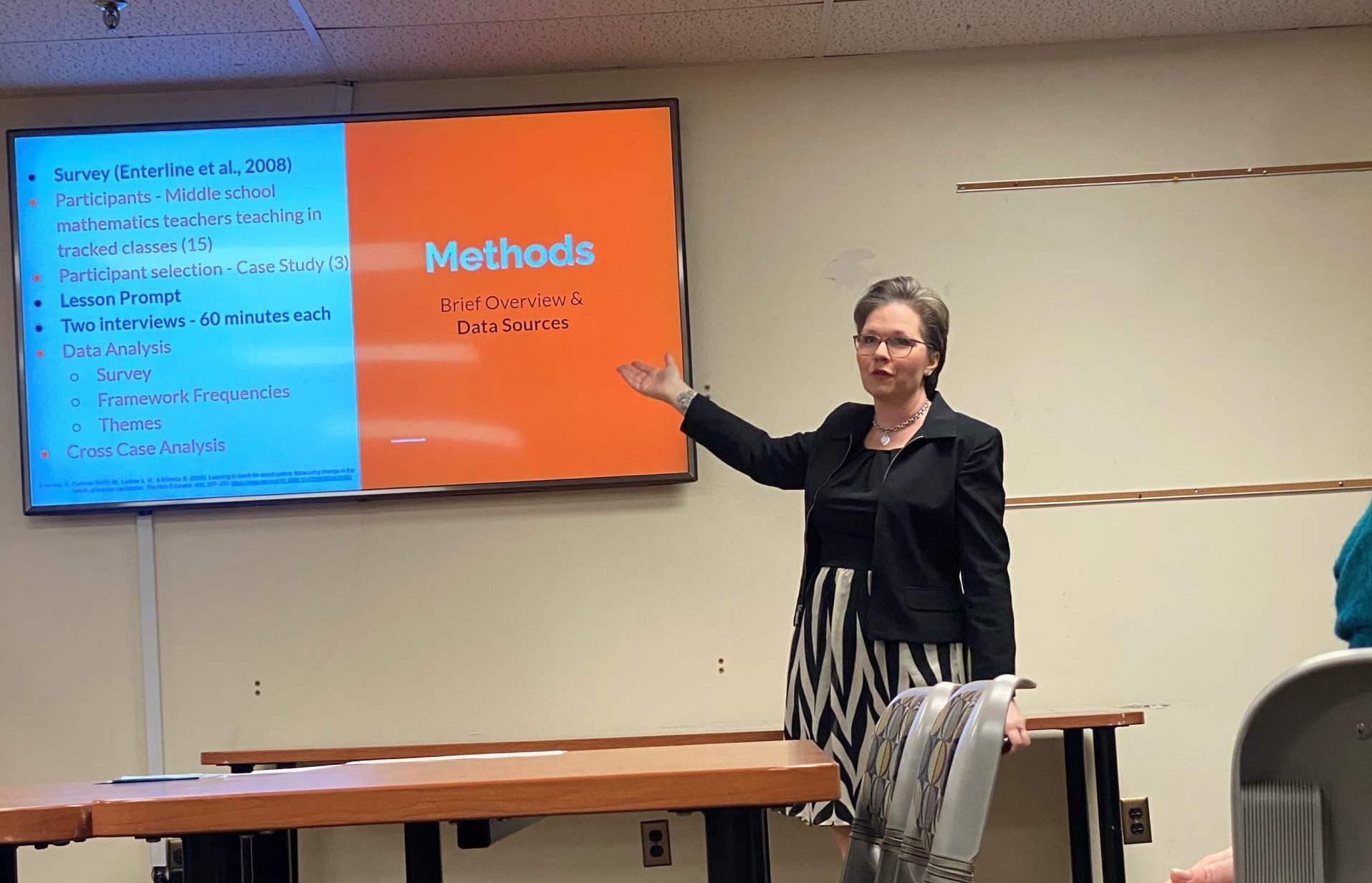ABSTRACT
TEACHERS’ EXPERIENCES WITH TEACHING FOR SOCIAL JUSTICE IN TRACKED MIDDLE SCHOOL MATHEMATICS CLASSES

Stephanie Jean White
Tracking is a longstanding structure in K-12 mathematics that decades of research has shown to be inequitable. Despites calls to detrack mathematics classes, most U.S. schools retain tracking. Mathematics educators have attempted to implement teaching pedagogies such as Teaching for Social Justice (TSJ) that promote equity in all mathematics classrooms, including tracked classes. This research used the Learning to Teach for Social Justice Belief (LTSJ-B) Scale with middle school mathematics teachers who have taught in tracked classes to measure their levels of commitment to TSJ. This research also employed case study methodology with three teachers and cross-case analysis using TSJ and Critical Race Theory frameworks to describe how teachers who tended to endorse TSJ pedagogy (a) described their enactment of TSJ pedagogy, and (b) their perceptions of how well they could create more equitable learning experiences for students. Data included survey and demographic responses, lesson plans, and interviews. Case study analyses revealed individual teachers’ attempts to enact TSJ pedagogy and their perceptions about equity. Although the teachers described varied ways of enacting TSJ pedagogy, they all felt their classes were equitable. Teachers’ descriptions of their experiences also revealed some inconsistencies between their survey responses and their reported practices. The results suggest that teachers who tended to endorse TSJ conceptualized TSJ and equity differently, but collectively, they wanted to empower students. Also, the teachers who described enacting TSJ pedagogy in their everyday practices instead of in isolated lessons enacted TSJ pedagogy more consistently. Findings based on teachers’ perceptions suggest that though TSJ pedagogy might foster equity within classes, TSJ pedagogy did not seem to mitigate the inequities between tracked levels. Teachers in this study described perceived barriers to creating equitable learning experiences for students such as time and required mathematics content coverage. This study has implications for mathematics teacher education and research such as a need to consider how TSJ might be used to create equitable teaching across tracks and that all teachers, including those who endorse TSJ pedagogy, might benefit from additional training on TSJ pedagogy.